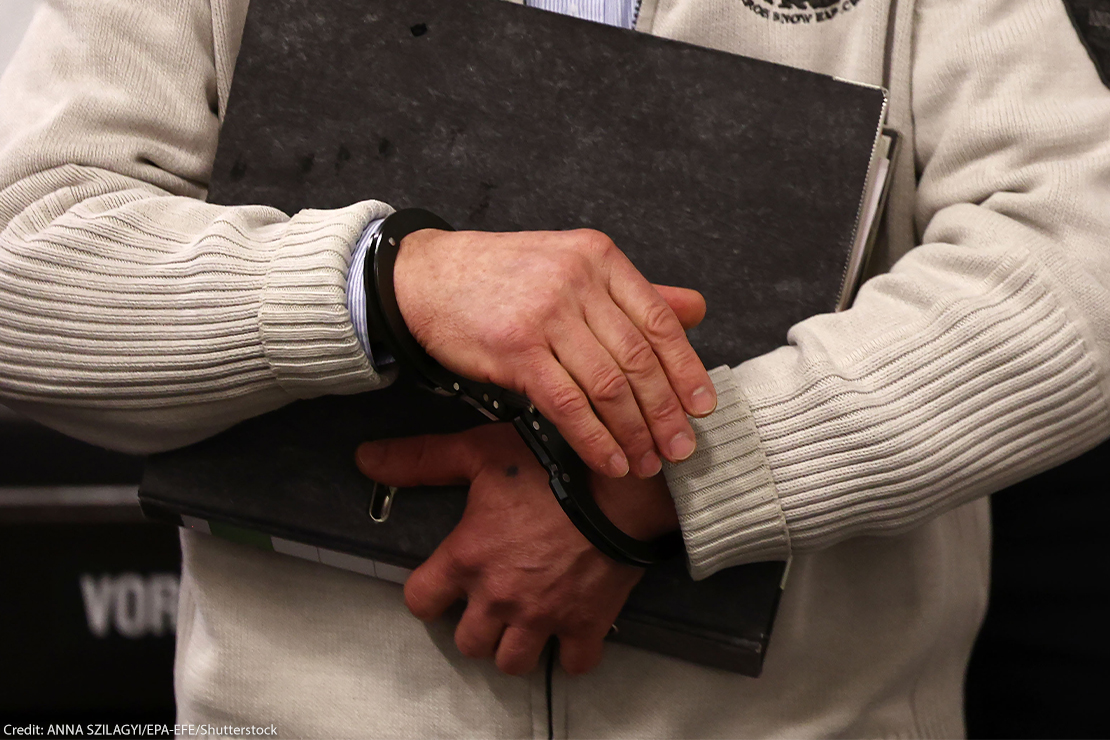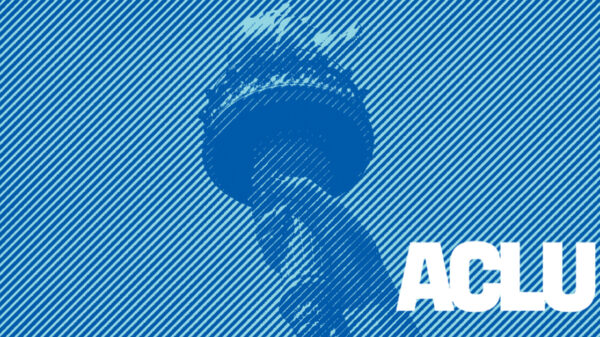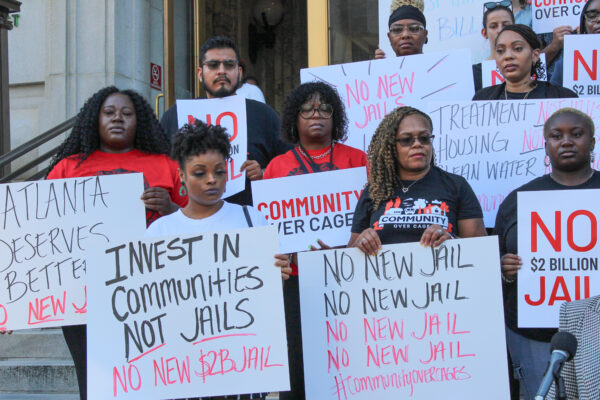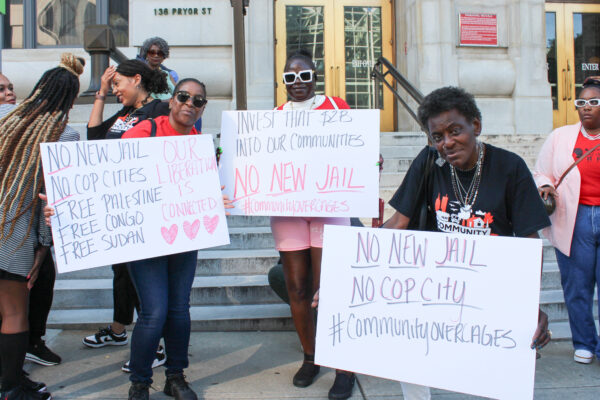THIS ARTICLE HAS BEEN TRANSLATED INTO AMERICAN SIGN LANGUAGE
A five-year effort to get equal access for deaf and hard-of-hearing people on parole and probation in Georgia has ended in victory. The American Civil Liberties Union and our legal partners reached a groundbreaking settlement that requires the Georgia agency responsible for supervising people on probation and parole – the Georgia Department of Community Supervision or “GDCS” – to dismantle the discriminatory hurdles that make it harder for deaf and hard-of-hearing people to avoid prison and live safely in their communities. We hope that other states look to this agreement when determining what is required for their supervision agencies to comply with the Americans with Disabilities Act and Section 504 of the Rehabilitation Act.
For years, our clients lived in constant fear of reincarceration. Supervision officers often held important meetings with people who used American Sign Language (ASL), but failed to provide ASL interpreters or other needed accommodations. They “explained” the rules of supervision to people who could not hear or understand these rules, but who nonetheless risked prison or jail if they didn’t follow them.
Two of our clients had this exact fear realized when ineffective communication resulted in them being incarcerated while the case was ongoing. Supervision officers also failed to take disability into account in other ways, too. They knocked on the doors of individuals they knew were deaf, and then accused them of failing to cooperate when they didn’t answer a knock at the door that they couldn’t hear.
Our clients’ heroic and sustained efforts have helped to guarantee equal rights for all deaf and hard-of-hearing people on supervision in Georgia. Starting now, each current and future deaf and hard-of-hearing person on supervision in Georgia will undergo a communication assessment that will allow the state to create a communication plan that considers the range of situations a deaf or hard-of-hearing person may experience while on supervision, and the types of accommodations they may need.
Importantly, GDCS has agreed to provide Deaf interpreters for people who need them. Deaf interpreters are sign language interpreters who are also deaf. A Deaf interpreter will work with a hearing ASL interpreter to provide effective communication, especially for deaf adults who have experienced language deprivation — a neurodevelopmental disorder with negative and long-lasting effects on the deaf adult’s language, cognitive, and socioemotional development. Long periods of incarceration with no ability to communicate with other people who know ASL can compound the effects of language deprivation. Hearing-sign language interpreters alone are typically unable to bridge the communication gap between deaf adults with language deprivation and their supervision officers. This communication gap can often lead to serious and preventable misunderstandings between the deaf person and the supervision officer that a Deaf interpreter could solve.
For example, in one instance a probation officer relied on a single, hearing interpreter — present on a computer — to explain a form with confusing conditions to a client. The client struggled to understand the interpreter and asked to take a photo of the form so he could ask the ACLU’s legal team to provide a Deaf interpreter to translate the form in a way he understood. Had the ACLU not stepped in to secure a Deaf interpreter, our client would not have fully understood what the form said, nor would he have been able to ask several clarifying questions, and would have risked reincarceration. This settlement ensures that any use of video interpretation, known as VRI, is clear, not relegated to a small cell phone screen, and that supervisees actually understand the directions being given.
GDCS will also now provide better accommodations for deaf or hard-of-hearing clients who cannot read and write English. Historically, the agency provided critical information about supervision only in writing. With this settlement, a lack of fluency in reading or writing English will no longer be a barrier to successfully completing supervision. If the deaf or hard-of-hearing person cannot understand written documents due to their disability, GDCS has agreed to use appropriate accommodations and provide the written information in another accessible format. This will help prevent future incidents of confusion when people receive documents with important instructions that they do not understand. We have also produced ASL and plain language translations of the new ADA Policy so that signers and those with limited literacy can access the ADA policy at any time.
Many people on supervision in Georgia are required to complete programs or classes as a condition of their supervision, but, in the past, the sponsors of many of these programs have refused to provide ASL interpreters and other necessary accommodations to our clients. GDCS will now require that the providers of any classes or programs required for people on supervision, comply with federal disability laws by providing necessary accommodations, such as interpreters, for effective communication.
While we’ve won this fight in Georgia, the work is not yet done. Every parole and probation department in the country has the obligation under federal disability laws to provide not only effective communication to deaf and hard-of-hearing people, but also any reasonable accommodations that people with disabilities need to have an equal opportunity to successfully complete supervision. In reality, probation and parole departments regularly fail to determine whether their people with disabilities need accommodations, let alone provide those accommodations.
Right now, we’re challenging this failure in Washington, D.C., where people with mental health disabilities are nearly twice as likely to face reincarceration or other punishment for “technical violations,” or minor rule violations like missing an appointment with a supervision officer. And in Georgia, we now begin a four-year period of monitoring the state’s compliance with the agreement. As part of that monitoring, GDCS will provide us with documentation to show that they are complying with the agreement and providing effective communication. If they violate it, we’ll see them back in court.







